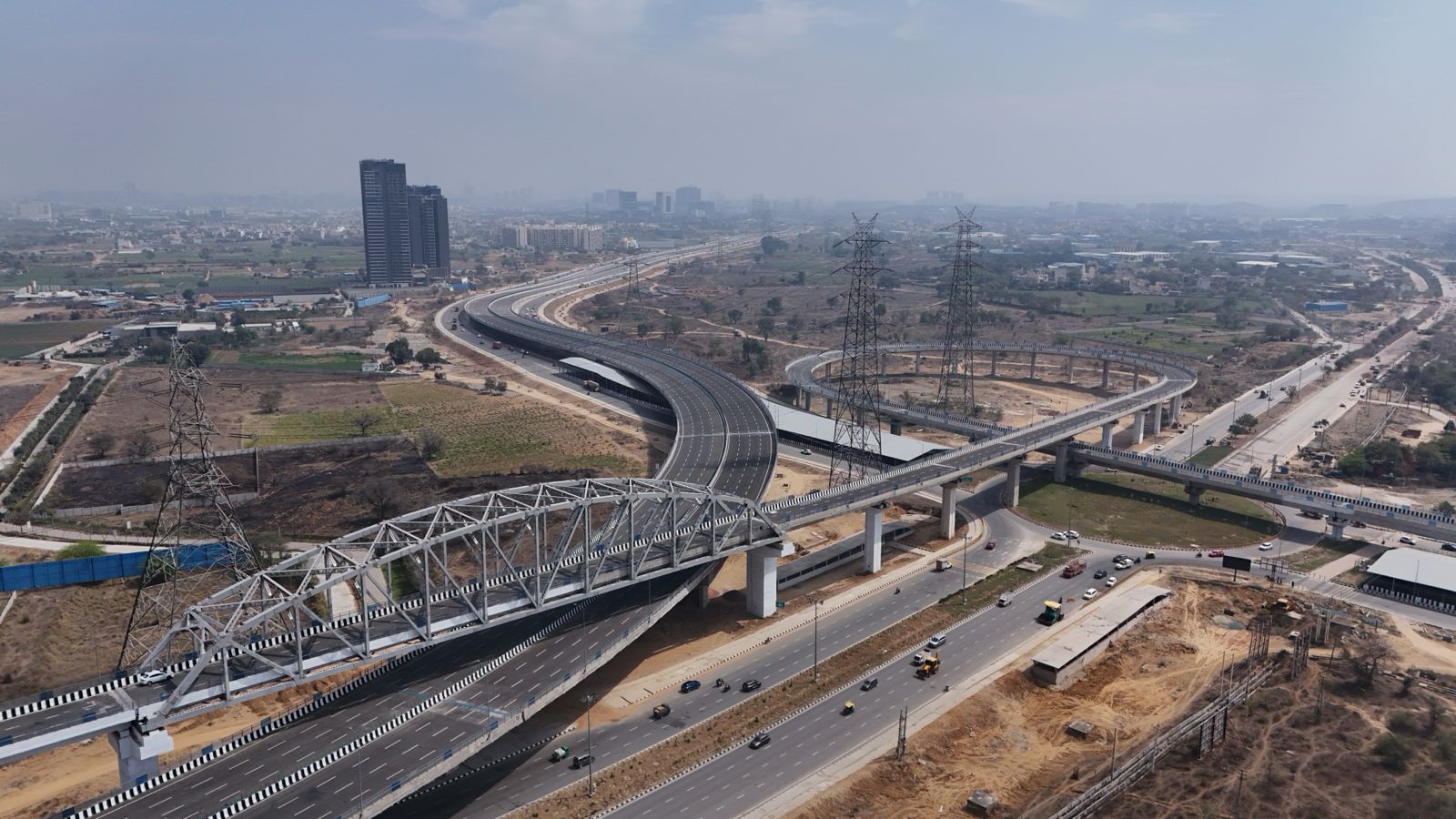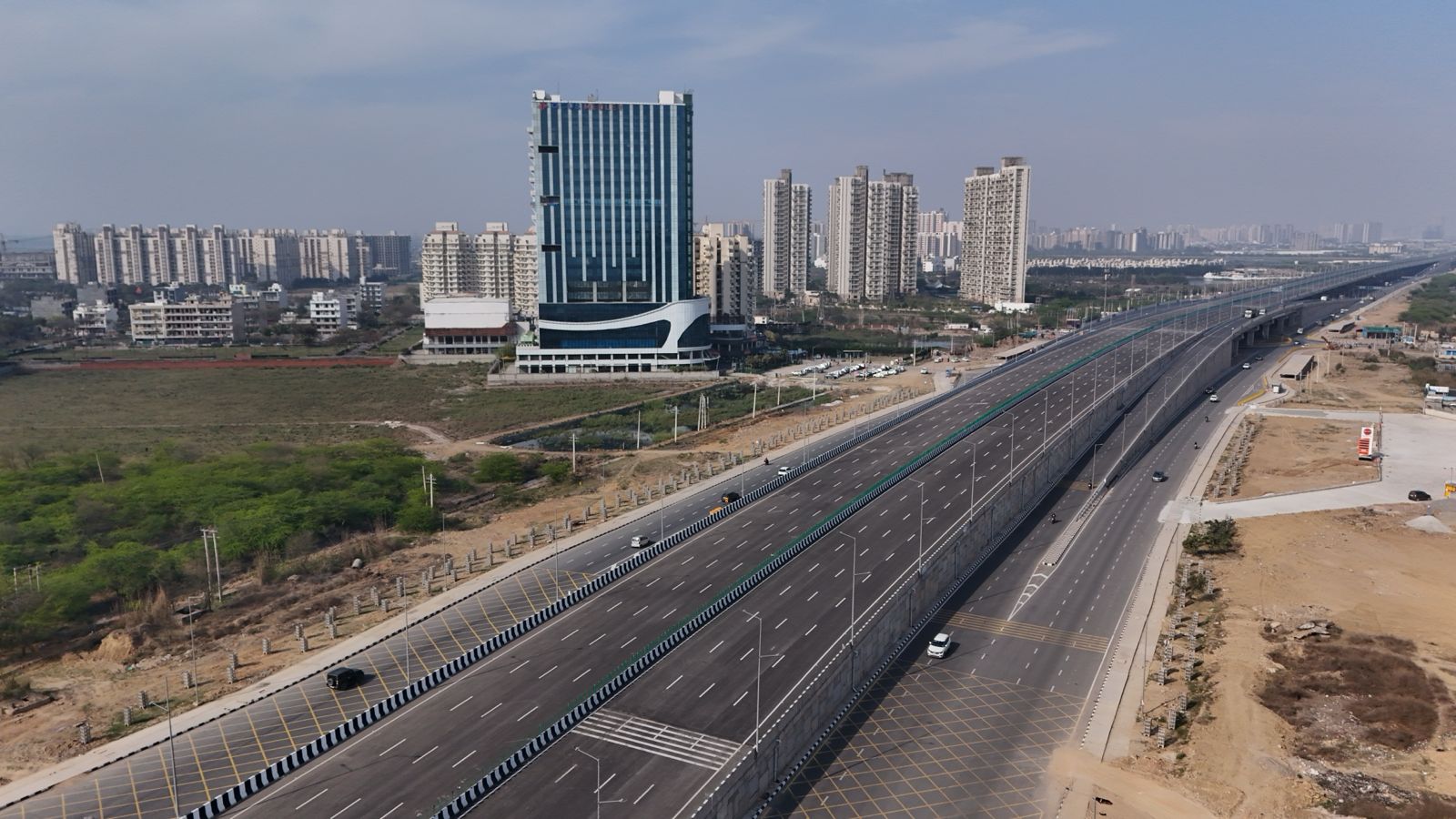Prime Minister Narendra Modi on Monday inaugurated the much-awaited Haryana section of the Dwarka Expressway which is expected to smoother traffic flow between Delhi and Gurugram.
The 19km stretch, built at a cost of Rs 4,100 crore, marks a significant milestone in the ₹60,000 crore National Capital Region highway development plan.
This ambitious project boasts several firsts for India. Dwarka Expressway is the country's first eight-lane, access-controlled, elevated urban expressway.
The 28.5 km expressway, featuring an elevated design for 75% of its stretch, boasts innovative traffic management solutions to ensure smoother flow and faster speeds. The design would allows segregate city traffic from high-speed expressway travel, as it boasts a unique three-tiered design at intersections, featuring an elevated expressway, surface roads, and underpasses.
This innovative layout promises to significantly improve traffic efficiency and decongest the perpetually gridlocked National Highway-48.
The Prime Minister flagged off the 19km Gurgaon section, stretching from the Dwarka border to the Delhi-Jaipur highway. The remaining 9.5km section, estimated to cost around 4900 crores, in Delhi is slated for completion later this year.

"This is a landmark project that will transform travel between Delhi and Gurugram," said Nitin Gadkari, Union Minister for Road Transport and Highways, who was present at the inauguration ceremony alongside Haryana Chief Minister Manohar Lal Khattar.
The expressway boasts several distinctive features. The 19km Gurgaon section is constructed on a single pier design, minimizing land acquisition and allowing for wider service roads.

Additionally, the expressway's layout restricts development along its path, ensuring a seamless traffic flow. Entry and exit are controlled, allowing for a high-speed travel experience.
Motorists can expect a significant reduction in travel time between Delhi and Gurugram. The expressway promises to bring down the travel time to around 30 minutes, which earlier took nearly 1 hour, a welcome relief for commuters grappling with perpetual congestion.
The Dwarka Expressway is just one piece of the puzzle. PM Modi also laid the foundation stones for several other key national highway projects across the country, aiming to create a more robust and efficient road network.
These projects include sections of the Bengaluru-Kadapa-Vijayawada Expressway, Belgaum-Hungund-Raichur section of NH-748A, Shamli-Ambala Highway, and the Amritsar-Bathinda corridor.




